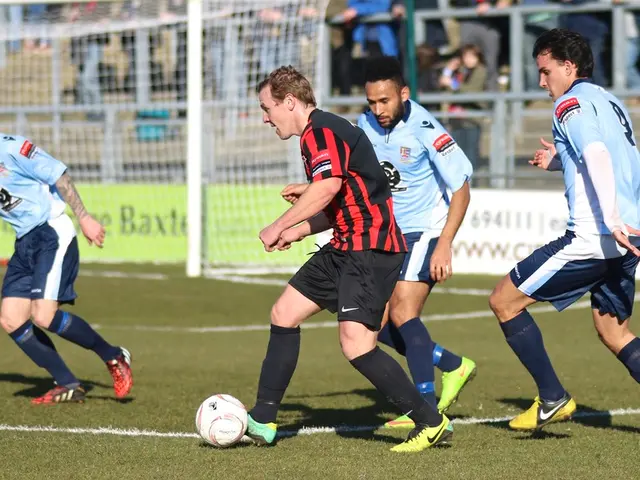Marley Wynter Faces Poker Scam Restitution of $4.8 Million
In a shocking turn of events, the Queensland Supreme Court has slapped Australian poker star Marley Wynter with a whopping $4.8 million restitution order. This ruling comes in the wake of allegations that Marley, notorious for his poker scene involvement, ran a Ponzi scheme under the guise of his business, Marley's House of Sport. The scheme lured investors with promises of lucrative returns from sports betting deals, only to leave numerous plaintiffs high and dry.
The Ponzi Scheme Saga
The bait? High returns on sports betting investments. The hook? A seemingly legitimate venture generating a whopping $30 million in profits within a year. However, what followed was a string of missed payments, fueling suspicions of a Ponzi scheme. Despite Wynter's swagger and pledges to repay investors with interest, the promised deadlines came and went, leaving many disgruntled and out of pocket.
The Poker Community Strikes Back
The poker community, not typically known for its conservative uniformity, has voiced its disapproval loudly. The case has garnered attention, not just for its gambling-related intrigue, but also for the worrying lack of regulation in sports betting and investment schemes within the community. Comparisons have been drawn with other infamous gambling scandals, underlining the need for a tighter leash on such activities.
Embracing Regulation: The Future of Sports Betting
This high-rolling episode may push for a tighter scrutiny of the sports betting realm, with an emphasis on investment schemes. The substantial restitution figure serves as a sobering reminder of the risks associated with high-stakes gambling investments, and the importance of more stringent oversight. Australia's recent tightening of gambling laws, targeting video games with lootboxes and gambling simulations, reflects a broader trend toward stricter gambling oversight [1].
Moreover, the Scams Prevention Framework Bill, passed by the Australian Parliament on 13 February 2025, introduces measures to combat scams, including those involving financial or investment schemes [5]. As for sports betting advertising reforms, they still remain in limbo due to lobbying efforts and political complexities [2][4].
In times like these, it's crucial to keep a close eye on regulators, such as ASIC (Australian Securities & Investments Commission), for updates on any new legislations or regulations specifically targeting sports betting investment schemes [3].
- The dramatic court ruling against Marley Wynter, the poker star from Queensland, has underscored the consequences of gambling-related scams, specifically in the context of his sports betting deals.
- The report highlights big-wins from casino-and-gambling activities, but the focus now shifts towards the Ponzi scheme allegations against Wynter's business, Marley's House of Sport.
- The poker community, previously associated with the thrill of the game, is now abuzz with concern over responsible-gambling practices, following the Marley Wynter case.
- The gambling trends now under the spotlight also encompass lotteries, sports-betting, and other forms of casino-games, in light of the need for increased regulation.
- The public outcry over the Marley Wynter case has prompted calls for stricter gambling laws, mirroring recent efforts in Australia against video games with lootboxes and gambling simulations.
- The Scams Prevention Framework Bill, passed by the Australian Parliament, is a step towards addressing gambling-related scams, addressing financial or investment schemes like the one at the heart of the Marley Wynter controversy.
- Amidst lobbying efforts and political complexities, sports betting advertising reforms remain in limbo, with regulators urging continued vigilance for updates regarding potential legislations or regulations targeting such investment schemes.
- Amid this saga, the Australian Securities & Investments Commission (ASIC) and other regulators become pivotal players in shaping the future of sports betting, providing a much-needed focus on responsible gambling and the prevention of scams.








